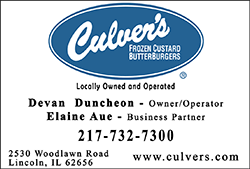North Carolina court says mother of student killed in ride-along can sue
trooper for negligence
 Send a link to a friend
Send a link to a friend
 [January 16, 2025]
By GARY D. ROBERTSON [January 16, 2025]
By GARY D. ROBERTSON
RALEIGH, N.C. (AP) — The mother of a North Carolina university student
killed while on a ride-along in a Highway Patrol cruiser can continue
suing for gross negligence the trooper who drove off the road during a
high-speed chase, a state appeals court ruled Wednesday.
By a 2-1 decision, judges on the intermediate-level state Court of
Appeals reversed a trial court’s ruling that dismissed the lawsuit filed
on behalf of the late Michael Higgins seeking damages from Trooper Omar
Romero Mendoza.
One night in August 2020, Mendoza — known as Romero in patrol documents
— drove off a Pitt County road at a curve after having been traveling
over 110 mph (177 kph), striking a utility pole and two trees. Higgins,
22, an East Carolina University criminal justice major enrolled in a
patrol internship program and inside the cruiser with Romero, died from
his injuries.
Lisa Higgins, the administrator of her son’s estate, sued in 2022 both
Romero and Trooper Brandon Cesar Cruz, who had suggested to her son that
he ride with Romero when Cruz lacked the time to do so. Superior Court
Judge William Wolfe dismissed in 2023 the lawsuit against both troopers.
Cruz was removed from Lisa Higgins’ appeal last year.
Higgins had previously participated in two successful ride-alongs with
other patrol officers. But neither Romero nor Cruz held the rank or the
title required to complete one, and Higgins apparently was unaware that
Romero wasn't authorized to take him along, the majority opinion said.
Romero and Higgins responded to the scene of where a car had driven off
the road into a ditch. Cruz also responded to the scene and encouraged
Romero to pursue in a high-speed chase an unidentified driver in the
area observed with an alcohol odor on her breath, according to trooper
statements.
Romero activated his emergency lights and siren and with Higgins as a
passenger accelerated the vehicle quickly to attempt to catch the
driver. Romero stated at a deposition that he believed the two-lane road
that he was traveling on was straight. Then he saw the suspect vehicle
breaking to the left, but he couldn't recall making any related driving
adjustments, Wednesday's ruling said.

[to top of second column]
|

A patrol report determined Romero had violated patrol policy in how
he initiated the “traffic enforcement response.”
Romero’s lawyer argued that as a government official Romero was
exempt in this situation from personal civil liability while
pursuing a criminal suspect, and that the state Industrial
Commission was where claims against a state employee's actions could
be brought. Commission awards are capped.
In the majority opinion, Court of Appeals Judge John Arrowood wrote
that the speed limit exemption in a police pursuit in state law did
not protect an officer from the “consequence of a reckless disregard
of the safety of others.” And the evidence and testimony suggest
there is a genuine issue of material fact that the trooper’s action
rose to the level of gross negligence, he added.
“It should be for the jury to determine whether defendant Romero’s
actions were needless or manifested a reckless indifference to the
rights of Michael,” Arrowood wrote.

Court of Appeals Judge Allegra Collins agreed with Arrowood. In a
dissenting opinion, Court of Appeals Chief Judge Chris Dillon wrote
that in the most favorable light for the plaintiff, the evidence
doesn’t show Romero acted with gross negligence.
Though how Romero “exercised his discretion in his pursuit of the
suspected drunk driver may have been negligent, it did not rise to
the level of ‘wanton conduct,’ done with ‘corruption or malice,’ ”
Dillon added.
The state Supreme Court could agree to hear the case if requested.
A lawyer representing Romero didn't immediately respond to an email
seeking comment.
Jim White, an attorney representing Lisa Higgins, was pleased with
Wednesday’s ruling, saying too many legal cases had given extreme
deference to officers for their actions while wearing a uniform and
traveling with blue lights on.
A jury trial would provide “vindication” to the Higgins family,
White said, leading to an acknowledgement that “he never should have
been in that car.”
All contents © copyright 2025 Associated Press. All rights reserved |